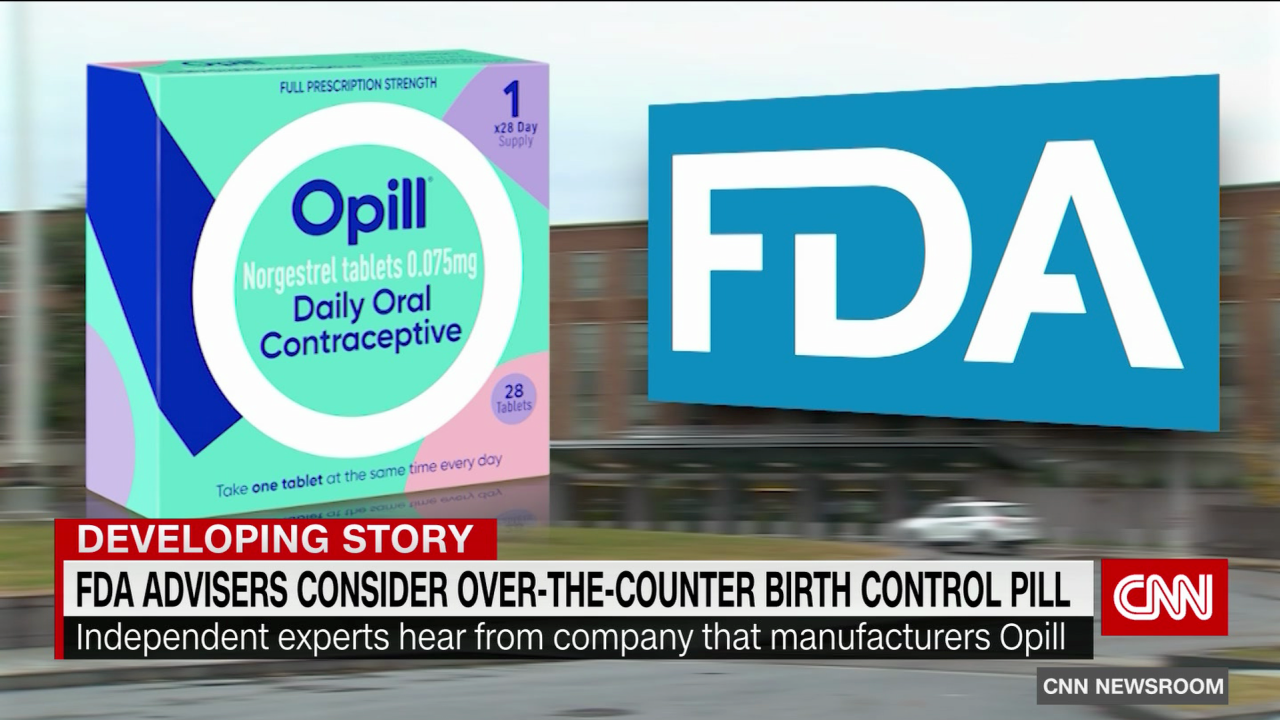Post-Roe America: How OTC Birth Control Impacts Women's Health

Table of Contents
Increased Accessibility and its Benefits
The potential shift towards wider availability of OTC birth control offers significant advantages for women's health. This increased accessibility manifests in two key areas: improved convenience and affordability, and empowered reproductive choices.
Improved Convenience and Affordability
Obtaining birth control without a doctor's visit significantly improves convenience. No more scheduling appointments, navigating insurance complexities, or potentially facing long wait times. This ease of access is particularly beneficial for women with busy schedules, those in rural areas with limited healthcare access, or those facing transportation challenges. Furthermore, the cost savings can be substantial. Many women, especially those uninsured or with high insurance deductibles, find prescription birth control unaffordable. OTC options could alleviate this financial burden, making reliable contraception attainable for a broader population. Improved access can also lead to better adherence to birth control regimens; easier access means women are more likely to consistently use their chosen method.
- Reduced healthcare costs: Eliminating doctor's visit fees and prescription costs can significantly reduce the financial strain.
- More convenient scheduling: No appointments needed, allowing women to obtain birth control at their convenience.
- Improved medication adherence: Easier access translates to greater consistency in birth control use.
Empowering Women's Reproductive Choices
Increased access to OTC birth control empowers women by giving them greater control over their reproductive health. The ability to obtain contraception discreetly and independently enhances privacy, a crucial factor for many. This autonomy extends beyond convenience; it fosters self-efficacy and a sense of agency in managing one's health. Women can make informed decisions about their bodies and futures without unnecessary barriers. This is particularly significant in the post-Roe era where access to comprehensive reproductive healthcare is increasingly restricted in some areas.
- Increased reproductive autonomy: Women can make choices about their bodies and futures without external barriers.
- Improved privacy: Access to contraception without a doctor's appointment safeguards personal information.
- Enhanced self-management of health: Women take control of their reproductive health and well-being.
Potential Challenges and Concerns
While the benefits of OTC birth control are significant, several challenges and concerns must be addressed to ensure its responsible implementation and equitable impact on women's health.
Misinformation and Incorrect Usage
A primary concern is the potential for misinformation and incorrect usage. Without proper medical guidance, women may choose inappropriate methods, use them incorrectly, or experience adverse effects due to underlying health conditions or medication interactions. This could lead to increased rates of unintended pregnancies, sexually transmitted infections (STIs), or other health complications. Comprehensive education and readily available, accurate information are crucial to mitigating these risks. Clear labeling, patient education materials, and potentially pharmacist counseling are essential components of responsible OTC birth control access.
- Risk of unintended pregnancy: Improper usage can significantly reduce the effectiveness of birth control.
- Importance of accurate information: Reliable sources and clear communication are crucial for safe and effective use.
- Potential for medication interactions: Some birth control methods can interact negatively with other medications.
Health Disparities and Access Gaps
Increased access to OTC birth control must not exacerbate existing health disparities. Women in low-income communities, rural areas, or marginalized groups may still face barriers such as cost, transportation limitations, or lack of information. These disparities must be actively addressed to ensure equitable access for all. Initiatives focusing on community outreach, affordable options, and culturally sensitive education are critical to closing these gaps and promoting health equity.
- Addressing health inequities: Proactive steps must be taken to ensure equitable access for all women.
- Geographic access limitations: Addressing access challenges in rural and underserved communities is paramount.
- Socioeconomic barriers: Financial constraints and lack of insurance should not limit access to birth control.
The Role of Pharmacists and Healthcare Professionals
The increased availability of OTC birth control necessitates a heightened role for pharmacists and other healthcare professionals. Pharmacists will be crucial in providing accurate information, counseling patients on appropriate usage, and identifying potential contraindications. This expanded role requires adequate training and resources. Collaboration between pharmacists, healthcare providers, and patient education programs is essential to ensure safe and effective use and address potential complications.
- Pharmacist training and education: Pharmacists need comprehensive training to effectively counsel patients.
- Patient counseling and support: Providing guidance and support is critical to safe and effective birth control use.
- Collaboration with healthcare providers: A coordinated approach is needed to ensure comprehensive care.
Conclusion
The availability of over-the-counter birth control in post-Roe America presents both opportunities and challenges. While offering increased accessibility, convenience, and empowerment for many women, it also raises concerns regarding misinformation, incorrect usage, and potential health disparities. Addressing these challenges through comprehensive education, equitable access initiatives, and enhanced collaboration between healthcare professionals is crucial to ensuring that OTC birth control truly improves women's health outcomes. For more information on navigating the complexities of reproductive health in the post-Roe era and understanding your options regarding over-the-counter birth control, consult your healthcare provider or a qualified pharmacist. Making informed choices about your reproductive health is key, so continue to learn about the various options available to you and find the best birth control method for your individual needs.

Featured Posts
-
 Hollywoods Double Strike What It Means For The Film Industry
Apr 22, 2025
Hollywoods Double Strike What It Means For The Film Industry
Apr 22, 2025 -
 Access To Birth Control The Otc Revolution After Roe V Wade
Apr 22, 2025
Access To Birth Control The Otc Revolution After Roe V Wade
Apr 22, 2025 -
 Razer Blade 16 2025 Ultra Thin Gaming Laptop A Comprehensive Review
Apr 22, 2025
Razer Blade 16 2025 Ultra Thin Gaming Laptop A Comprehensive Review
Apr 22, 2025 -
 Karen Read Murder Trials A Chronological Overview
Apr 22, 2025
Karen Read Murder Trials A Chronological Overview
Apr 22, 2025 -
 Trade War Concerns Weigh On Markets Dow Futures Dollar Dip Live Updates
Apr 22, 2025
Trade War Concerns Weigh On Markets Dow Futures Dollar Dip Live Updates
Apr 22, 2025
